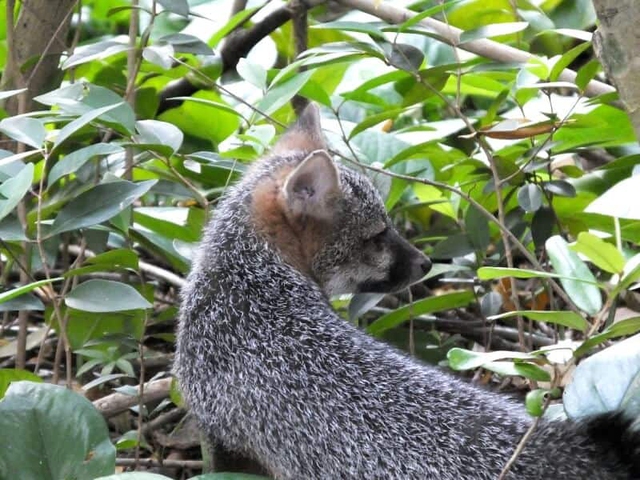https://www.lifegate.it/animali-con-la-u
- |
The names of the aanimals that begin with the letter U they offer an opportunity to discover unique and often little-known species.These animals inhabit different parts of the world, each with their own characteristics, habitat and curiosities.Deepening our knowledge of these species allows us to appreciate biodiversity and understand the importance of their conservation.
Animals with U
Mammals
Marmoset
- Description:small primate known for the thick hair that covers his body and frames his face
- Habitat:rainforests of South America
- Curiosity:The marmoset's tail is longer than its body and is used for balance as it moves through trees
Urial
- Description:wild sheep with large horns with divergent tips
- Habitat:Central and South Asia
- Curiosity:also known as shapo or arkars, the urial lives in mountainous and arid terrain
Urocyon
- Description:small American fox, also known as gray or tree fox
- Habitat:North and South America
- Curiosity:the urocyon is at critical risk of extinction and stands out for its grizzled-grey coat with reddish hues
Ursone
- Description:large rodent, also known as New World porcupine
- Habitat:North America
- Curiosity:after the beaver, it is the second largest rodent in North America, characterized by spines hidden among its long, bristly fur
Birds
Nightingale
- Description:passerine bird famous for its melodious song
- Habitat:Europe, North Africa and Asia
- Curiosity:its song is considered one of the most beautiful of all songbirds
Hoopoe
- Description:bird with a characteristic tuft of feathers on the head and a long, thin beak
- Habitat:Eurasia, Africa and parts of North Africa
- Curiosity:the name hoopoe comes from the onomatopoeic sound of its call "hup-hup-hup"
Birds of paradise
- Description:family of songbirds known for their melodious song and marked sexual dimorphism
- Habitat:Oceania
- Curiosity:males have long, colorful feathers used to attract females
Black guillemot
- Description:seabird with plumage that changes color seasonally
- Habitat:Boreal Emisphere
- Curiosity:in summer, the feathers are black with white wings, while in winter they become gray
Reptiles and Amphibians
Uromastice
- Description:diurnal reptile also known as mastigure
- Habitat:deserts of sub-Saharan Africa and Saudi Arabia
- Curiosity:it feeds mainly on vegetables and seeds, rarely supplementing its diet with insects
Yellow-bellied toad
- Description:anuran amphibian with yellow spots on the belly
- Habitat:Central-Eastern Europe and Asia Minor
- Curiosity:it emits a characteristic call during the reproductive period, which it can repeat up to 40 times per minute
Environmental impacts and conservation projects for animals with the U
Environmental impacts
Climate change:Climate change negatively affects many of these animals, altering their natural habitats and food resources.For example, global warming is reducing the forested areas crucial for species such as the nightingale and the urial, while climate variations are affecting the desert areas inhabited by uromastics.
Human activities:deforestation and agricultural expansion reduce the natural habitats of species such as the hoopoe and the urchin.Pollution and urbanization pose further threats, reducing safe areas for these species to nest and feed.
Conservation projects
Natural reserves:the creation of nature reserves and protected areas is fundamental for the conservation of these species.Specific projects aim to preserve critical habitats for the urial and yellow-bellied toad, protecting their breeding and feeding areas.
Playback programs:Initiatives for captive breeding and reintroduction into the wild are crucial for species such as the hoopoe and the marmoset, ensuring their long-term survival.These programs help maintain a healthy, genetically diverse population.
Curiosities and interesting facts
- Hoopoe:the hoopoe's tuft of feathers opens and closes like a fan, used both to attract partners and to intimidate predators.
- Urocyon:this tree fox is able to climb trees to escape predators and search for food.
Conclusion
Animals with the letter U show the extraordinary diversity of nature and the importance of preserving it.Protecting these species is essential not only for their intrinsic value, but also to maintain the balance of our ecosystems.Each of us can make a difference through small daily gestures and by supporting conservation initiatives.




